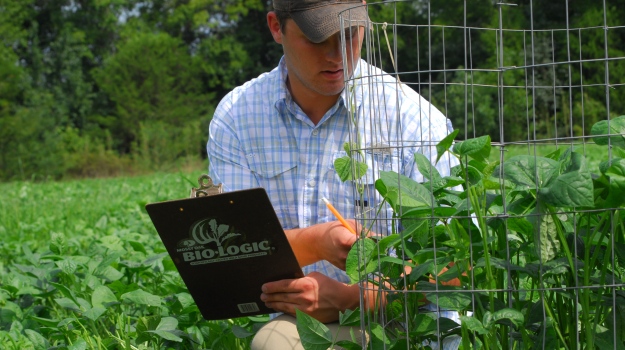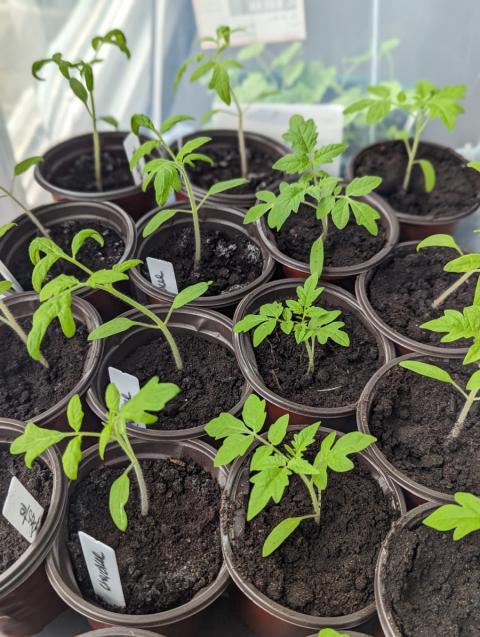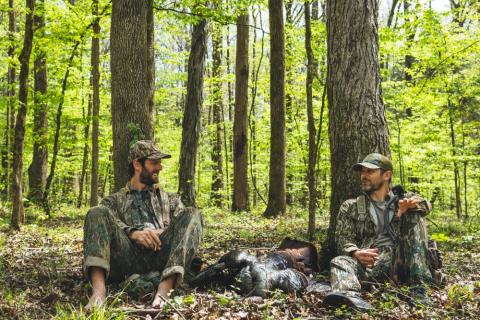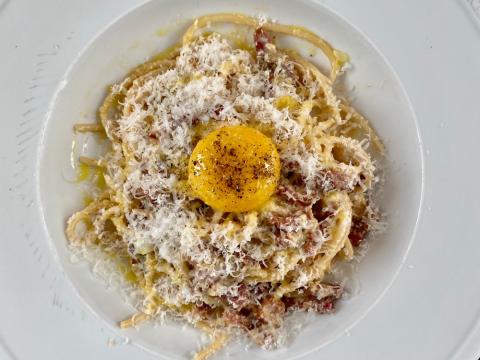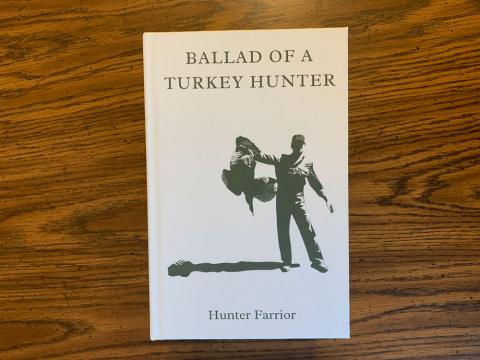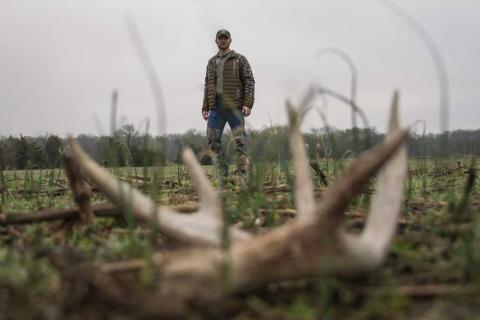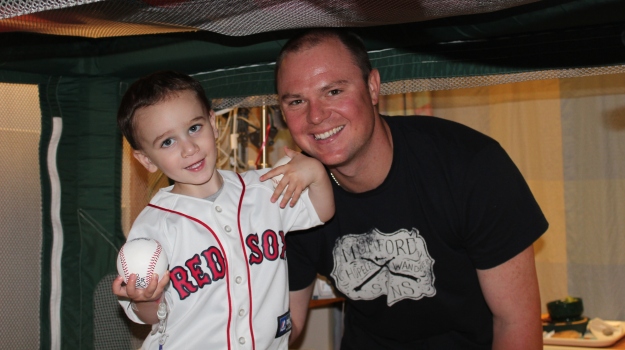
Editor’s Note: Mossy Oak is more than a camouflage, hunting, wildlife management and rural properties company. Mossy Oak is made up of some of the best people in the world. This week you’ll meet 29-year old Jon Lester from Washington State, who was drafted by the Boston Red Sox in 2002 at only age 18, and who spent 4 years in the minor leagues and then went to the big leagues in 2006. Lester is currently one of the best left-handed pitchers in the sport of baseball, is starting for the Boston Red Sox and has the best record in baseball for 2013. Lester, a Mossy Oak Pro Staffer, also is a hunter, a cancer survivor and a family man.
Although I helped win the World Series for the Boston Red Sox and pitched a perfect game, what I’m most proud of is being consistent in my career in the number of starts that I’ve made as a pitcher, the number of innings I’ve been able to pitch, and the number of wins I’ve helped my team achieve. In 2010, I won 19 games. When I look at great baseball players, I look at the length of time they played the game, how consistent they were, and the fact that they tried to do the best they could every day they played.
For a brief time, I thought my dream might be over. In 2006, I was driving from the ball park, and someone ran into the rear of my car. I didn’t think the accident was that bad, so I went on to the ball park knowing I had to pitch that night. I pitched that night, went home and went to bed. I hardly could get out of the bed the next morning. My back was really hurting. I’d been playing a lot and was worn down, but I got up and starting moving. We flew to Los Angeles, and I pitched in a game. After the game, I still was hurting and could hardly sleep. I couldn’t even lift 5 pounds. The next night we flew to Seattle to play a game there, my parents came to the airport to pick me up, and I told them. But I didn’t want to tell anyone else, because I didn’t want to be put on the disabled list. My uncle was a doctor there, and I thought maybe he could give me something to help the pain. Two or 3 hours later my dad and I went to the emergency room. My uncle was an internist and didn’t go to the ER with us. He got me admitted to the ER. After an examination, the doctor came in to see me and my dad and asked, “Have you had any other problems other than you back?” I said, “No.” The doctor looked at me. Then, he looked at my dad, then back at me and announced, ‘Well, you either have lymphoma or testicular cancer.” I was 22-years old. I had my life and my career in front of me, and I thought I’d just been given a death sentence. My dad called my mom, and she came to the hospital. My uncle came to the ER and got on the emergency room doctor. He told him he shouldn’t have told me I had cancer without more documentation. We went back to my parents’ home. I called the manager of the baseball team and told him what was happening.
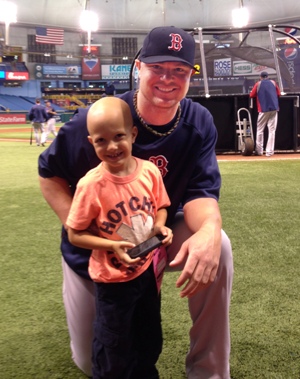
I stayed at home for 2 days and then we went to the airport. The owner of the Red Sox, John Henry, had made arrangements for my dad, my mom, my uncle and me to fly back to Boston in his private airplane. Mr. Henry said, “Y’all get back to Boston as fast as you can and find the best doctor you can.” When we got to Boston, we went to see a doctor, who performed a bunch of tests. I continued to get worse, I couldn’t sleep, and I couldn’t eat. Finally I spent 2 days in the hospital with a morphine drip just to ease the pain. While in the hospital, all types of tests were run to try and determine what was the matter with me. The doctors suspected lymphoma, but lymphoma would have attacked the white blood cells, and my white cells were coming back fairly normal. Finally they discovered a lymph node pushing up against a disk in my spinal column, which was causing the pain. After doing the biopsy on that lymph node, the oncologist came into my room but said, “I’ll come back when your parents are here, and we can talk.” I looked the doctor in the eyes and said, “I’m not stupid. We both know what this is, and I want you to tell me.” So, the doctor sat down, and we began to talk. He said, “You have non-Hodgkin's anaplastic large-cell lymphoma.”
Now, if somebody held a gun to your head and said, “What type of cancer do you want us to put into your body?” that type of cancer would be the one you should pick, because at that time, there was an 85-percent cure rate. Once I knew what was going on, I wasn’t worried any more. I just wanted to know what was the plan of attack to kill this cancer. My family and I went home and spent a week together. Then I started chemotherapy. We discovered a little trick that really helped me not have the many side effects that most people would have when taking chemotherapy. The doctor would give me a full bag of fluids, which took about 2 hours. Then, I’d have the chemotherapy for about 3 hours. The first round of treatments I did in Boston. The President of the Boston Red Sox, John Henry, flew me and my family back to my home in Washington State, where I took the rest of my treatments. I lost my hair, I really felt weak and run down, and I lost weight. The biggest thing that helped me through this whole process of chemotherapy for the cancer that I had was I tried to live my life as normally as possible. I’d go fishing with my dad and my uncle, I’d go hunting, or I’d just walk around the mall. I didn’t want to sit around the house all day. Sometimes I’d just get in my car, turn the radio on and just drive. I always tried to leave the house when I began thinking about the questions, “Why me?” “Will I ever get well?” “Will I ever play baseball again?” “Is this chemotherapy working?” “Am I going to get better?”
All this happened in the off-season of 2006, so, I didn’t miss any time from playing baseball. The days I felt good, I’d work out in the gym. The days I didn’t feel so good, I’d still throw the baseball. I tried to do all the things I normally would do to get in shape for spring training. I had my last chemo treatment the last week in January, and I was declared cancer-free right after that.
On February 1, 2007, I went to Fort Myers, Florida ready for spring training. When I was signed in 2002, I was 6’4”and weighed 220 pounds. After going through chemo, I was 185 pounds. When I went to spring training I had gained back to 200 pounds. During spring training, I did my normal spring-training routine – strength trained, pitched and played. The Boston Red Sox called my next assignment “Big League Rehab Assignment.” I had a choice of either staying in Florida or going to Greenville, South Carolina, where the Red Sox had a Class A baseball team. I made five starts as a pitcher on that team. Next I was sent to our Triple-A team in Pawtucket, Rhode Island, where I got my elbow hurt. I spent all of June and half of July in Pawtucket and pitched every 5 days. Then, I was called back up to the Major Leagues. From July of 2007 until now, I’ve played in the Major League.
The 2013 Boston Red Sox:
The Boston Red Sox team has had a phenomenal year in 2013. At this writing, they are headed into the playoffs with 94 wins and 62 losses. With five more games to play, they already have won their division and are eight or nine games ahead of the Tampa Bay Rays and a game and half ahead of the Oakland A’s for the best record in the American League. At this writing, the Red Sox are odds-on favorites to return to the World Series.
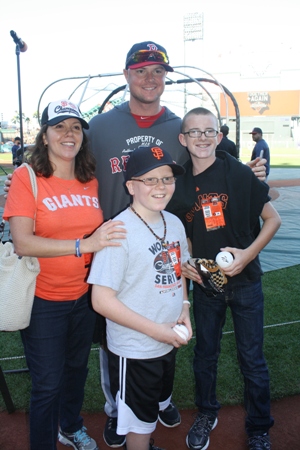
The Never Quit Foundation:
A couple years ago, my wife, Farrah, and I started a foundation called Never Quit to support pediatric cancer research. Because of having had cancer myself, Farrah and I wanted to be involved in helping to find a cure for adult cancer and pediatric cancer. After the birth of our first son, we created the Never Quit Foundation for pediatric cancer. You can learn more at www.nvrqt.org.
I love being around kids. We call the local pediatric research center or the Children’s Hospital that deals with pediatric cancer patients in every town we travel to with the Boston Red Sox. We invite some of the children with pediatric cancer and their families out to the ball park to watch the baseball games. We try to introduce the children to members of the Boston Red Sox team, and the team we’re playing will send some of their players over to meet the children too. We get tickets for the kids and their families to the game and try to do what I did when I learned I had cancer - live a normal life in spite of the cancer. We feel at the foundation that, if we can get the children and their families to the baseball game, have them eat some hotdogs, laugh and meet baseball players like David Ortiz and some of the other big league baseball players, we’ve done a good thing, and helped bring some normalcy to the families and especially to the children. We also have an annual event in Boston every year to raise money for pediatric cancer research and to make more people aware of this disease and the battle these children have to fight. For more information, please visit www.facebook.com/NVRQT.
For more information on Jon Lester, CLICK HERE.
















